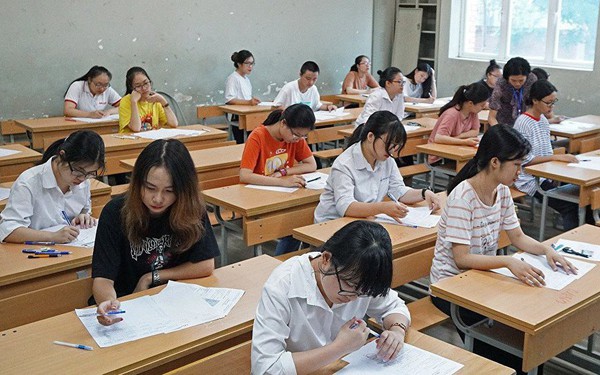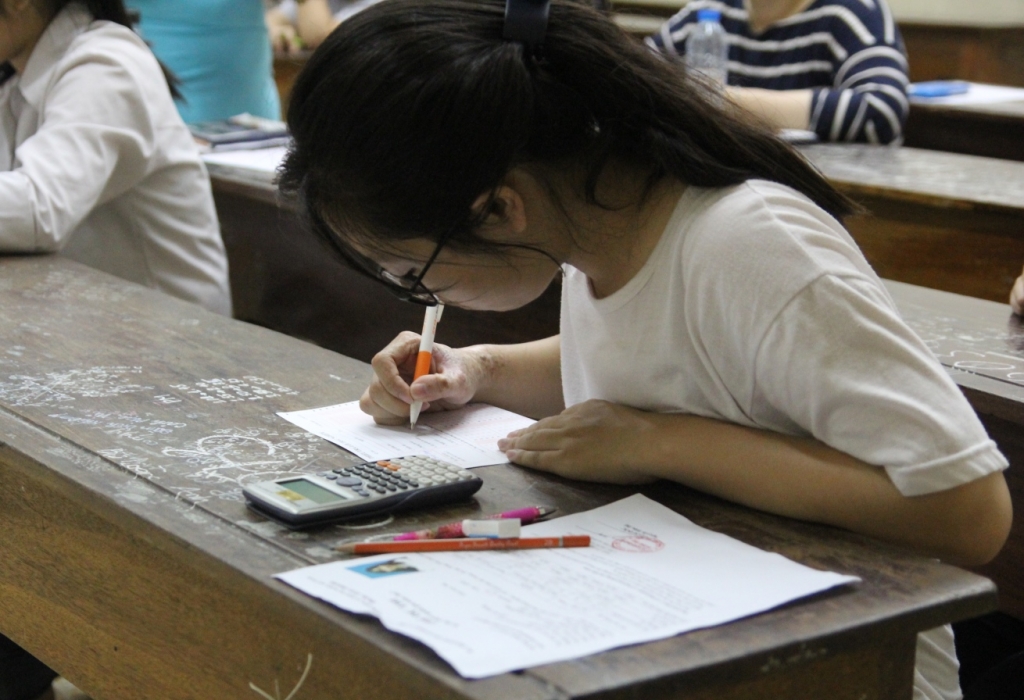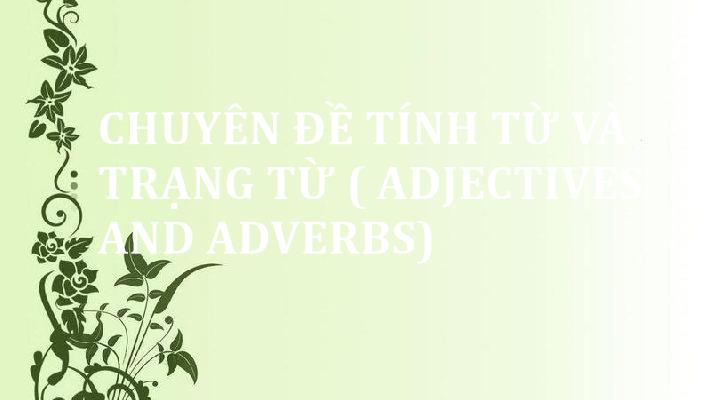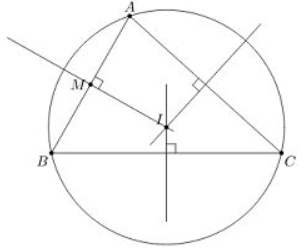BÀI TẬP VIẾT LẠI CÂU HAY
Với dạng bài tập này, thông thường đề sẽ đưa ra một câu cùng với một/ hoặc một số từ gợi ý, sau đó yêu cầu thí sinh sử dụng những từ gợi ý viết lại câu đã cho sao cho nghĩa không đổi. Để làm tốt dạng bài này, các em cần nắm chắc kiến thức về những cấu trúc tương đương hay những cách chuyển đổi câu.
Dưới đây là một số cách chuyển đổi câu thường gặp:
- Chuyển từ câu chủ động sang câu bị động:
E.g. We will change the date of the interview again.
=> The date of the interview will be changed again.
- Các dạng câu điều kiện:
E.g. It rained heavily so we couldn't go on a picnic.
=> If it hadn't rained heavily, we could have gone on a picnic.
- Các dạng so sánh:
E.g. Hanoi Capital is bigger than Nam Dinh City.
=> Nam Dinh City is smaller than Hanoi Capital.
=> Nam Dinh City is not as big as Hanoi Capital.
- Chuyển từ câu trực tiếp sang câu gián tiếp:
E.g. She said, " I can't drink wine."
=> She said (that) she couldn't drink wine.
- Sử dụng các cấu trúc/ cách diễn đạt tương đương:
E.g. Do you understand what he is saying?
=> Are you aware of what he is saying?
E.g. Although he had a headache, he went to school.
=> Despite/ In spite of his headache, he went to school.
- Các cách diễn đạt tương đương liên quan đến sự thay đổi thì của động từ:
E.g. It's four years since I last smoked.
=> I haven't smoked for four years.
- Các trường hợp về đảo ngữ:
E.g. As soon as my father left the house, my mother appeared.
=> Hardly had my father left the house when my mother appeared.
=> No sooner had my father left the house than my mother appeared.
Cách thức làm dạng bài tập này:
1. Hãy đọc kĩ câu gốc và cần chắc chắn rằng bạn hiểu ý nghĩa của câu gốc.
2. Nhìn các từ gợi ý và xác định xem ta cần dùng cách chuyển đổi nào để viết lại câu: cần sử dụng từ/ cấu trúc tương đương hay cần chuyển đổi câu sang dạng khác (chủ động, bị động, gián tiếp, so sánh …)
3. Viết lại câu và kiểm tra lại xem có cùng nghĩa với câu gốc không.
Một số chú ý khi viết lại câu:
- Câu được viết lại phải cùng thì với câu đã cho.(Ngoại trừ cách diễn đạt tương đương liên quan đến sự thay đổi thì của động từ.)
- Câu được viết lại phải đúng về ngữ pháp.
- Nghĩa của câu sau khi viết phải không đổi so với câu ban đầu.
Các em cần nắm chắc các cách chuyển đổi trên cũng như sưu tầm thật nhiều cấu trúc tương tương và làm bài luyện tập nhiều hơn để ghi nhớ các cấu trúc đó nhé.
Exercise 1 : Ghép hai câu làm một, dùng từ gợi ý.
1.Minh does morning exercises regularly. He wants to be healthy ( so as to)
…………………………………………………………………………….
2. I’m learning English. I want to read book in English. (in order to)
…………………………………………………………………………....
3. She said nothing . She didn’t want to make him angry (so as to)
……………………………………………………………………………
4. The man was taken to the local hospital. He was injured in the accident. (past participle)
…………………………………………………………………………….
5. The musician is internationally famous. He appeared in the concert last night. (present participle)
…………………………………………………………………………….
Đ/a:
1.Minh does morning exercises regularly so as to be healthy.
2.I’m learning English in order to read book in English.
3.She said nothing so as not to make him angry.
4.The man injured in the accident was taken to the local hospital.
5.The musician appearing in the concert last night is internationally famous.
Exercise 2: Dùng từ gợi ý viết lại các câu sau sao cho nghĩa của câu không thay đổi.
1.Keeping the environment clean is very important.
- It’s ……………………………………………………………………………..
2.They will show the time machine to the public when they finish it.
- The time machine ……………………………………………………………………..
3.He was delighted to receive his aunt’s letter.
- He was delighted that ………………………………………………………………..
4.Old car tires are recycled to make shoes and sandals.
- People ………………………………………………………………………………..
5.I’m very sad that I wasn’t accepted in that group.
- I’m very sad not …………………………………………………………………….
6.It’s three years since I last spoke to her.
- I haven’t ………………………………………………………………………………
7.Tam doesn’t type as fast as she used to.
- Tam used ……………………………………………………………………………..
8.“ Please turn down the radio for me”, said my father.
- My father asked ………………………………………………………………………
9.Lan will be fifteen next week.
- It is Lan’s ……………………………………………………………………………..
10. How long is it since you used the pen?
- When ………………………………………………………………………….?
Đ/a:
1.It’s very inportant to keep the environment clean.
2.The time machine will be shown to the public when it is finished.
3.He was delighted that his aunt sent him a letter.
4.People recycle old car tires to make shoes and sandals.
5.I’m very sad not to be accepted in that group.
6.I haven’t spoken to her for three years.
7.Tam used to type faster than she can/ does now.
8.My father asked me to turn down the radio for him.
9.It’s Lan’s fifteenth birthday next week.
10.When did you use the pen?
Exercise 3: Sắp xếp các từ sau thành câu hoàn chỉnh.
1.stamps / a child / Minh / since / collected / was / has / he.
- …………………………………………………………………………………….
2.tomorrow / can / not / we / somewhere / I / so / working / go / am.
- ……………………………………………………………………………………..
3.back / in / months / England / going / two / are / to / they.
-………………………………………………………………………………………..
4.information / entertainment / also / is / TV / only / but / not / bringing .
-………………………………………………………………………………………..
5.struggle / on / always / nature / home / life / at / is / the farm / with / a.
-………………………………………………………………………………………
Đ/a:
1.Minh has collected stamps since he was a child.
2. I am not working tomorrow so we can go somewhere.
3. They are going back to England in two months.
4. TV bringing not only information but also entertainment.
5. At home on the farm life is always a struggle with nature.
Exercise 4: Dùng từ gợi ý viết thành câu hoàn chỉnh.
1.Keeping the environment clean is very important.
-> It’s …………………………………………………………………………………..
2. They will show the time machine to the public when they finish it.
-> The time machine ……………………………………………………………….…..
3. They have given her a bunch of flowers.
-> A bunch of ..................................................................................................................
4. Old car tires are recycled to make shoes and sandals.
-> People ………………………………………………………………………………
5. This textbook has sixteen units.
-> There are ……………………………………………………………………………
6. It’s three years since I last spoke to her.
-> I haven’t ……………………………………………………………………………
7. Tam doesn’t type as fast as she used to.
-> Tam used …………………………………………………………………………..
8. “ Please turn down the radio for me, ” said my father.
-> My father asked ……………………………………………………………………
9. Lan will be fifteen next week.
-> It is Lan’s …………………………………………………………………………..
10. How long is it since you used the pen?
-> When ………………………………………………………..……….…………….?
Đ/a:
1.It’s very important to keep the environment clean.
2. The time machine will be shown to the public when it is finished.
3. A bunch of flowers have been given to her (by them)
4. People recycle old car tires to make shoes and sandals.
5. There are sixteen units in this textbook.
6. I haven’t spoken to her for three years.
7. Tam used to type faster than she can/ does now.
8. My father asked me to turn down the radio for him.
9. It’s Lan’s fifteenth birthday next week.
10. When did you use the pen?
Exercise 5: Sắp xếp những từ dưới đây thành câu hoàn chỉnh.
1. stamps / a child / Minh / since / collected / was / has / he.
-> …………………………………………………………………………………….
2.tomorrow / can / not / we / somewhere / I / so / working / go / am.
-> ……………………………………………………………………………………..
3. back / in / months / England / going / two / are / to / they.
-> ……………………………………………………………………………………..
4. information / entertainment / also / is / TV / only / but / not / bringing .
-> ……………………………………………………………………………………..
5. struggle / on / always / nature / home / life / at / is / the farm / with / a.
-> …………………………………………………………………………………….
Đ/a:
1.Minh has collected stamps since he was a child.
2. I am not working tomorrow so we can go somewhere.
3. They are going back to England in two months.
4. TV is bringing not only information but also entertainment.
5. At home on the farm life is always a struggle with nature.







